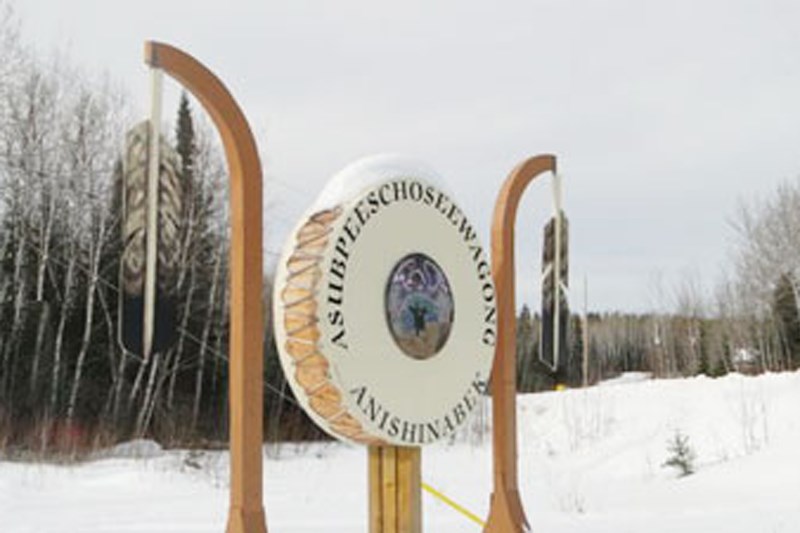GRASSY NARROWS — A community checkpoint has been set up at the Asubpeeschoseewagong (Grassy Narows) First Nation reserve due to concerns about human trafficking.
The Treaty 3 community’s emergency response coordinator said in a notice posted last week on social media that there have been “recent incidents involving attempted abductions of our band members.”
The Treaty Three Police Service (T3PS) issued a statement acknowledging the concerns in Grassy Narrows and saying “we fully support the proactive measures taken by the Chief and Council to ensure the safety of their members.”
The Kenora-based police service “is dedicated to addressing human trafficking, drug trafficking and organized crime in our communities,” the statement declared.
A “community sergeant” assigned to Grassy Narrows “has been dedicated to serving the community, actively engaging with residents, and fostering a safer environment,” according to the T3PS statement.
The statement also mentioned the Maanaji’iwin Project, through which “T3PS works to prevent human trafficking, raise awareness and provide support to victims.”
Jody Smith, coordinator of the Maanaji’win Project, said a core focus of the project is “to provide prevention and education and awareness to all the communities that the Treaty Three Police Service patrols.”
That includes “a lot of collaboration” with schools, frontline workers, community organizations and elders, she said.
“So, a lot of the prevention and education pieces. You know, our work encompasses a lot of collaboration and it’s done through creating an awareness on human trafficking.”
The project name translates to the English word “respect,” Smith said.
“Human trafficking is a serious problem in Ontario’s north and across the whole province,” Tina Bobinski, the Ontario Native Women’s Association’s (ONWA) senior director of community development, said in interview Tuesday.
“Human trafficking disproportionately impacts Indigenous women and girls,” Bobinski continued, “but the exact numbers are unknown because it often goes unreported.
“Most of the data in Ontario comes from police-reported incidents. However, this barely captures the true incidence of human trafficking, because not all victims … report to the police or get their information to the police. So, we know it is under-reported.
“And Indigenous women and girls face significant barriers in reporting, including sometimes poor interactions with law enforcement, because of their experiences of trauma, discrimination and racism.”
ONWA has supported more than 1,000 “exits from human trafficking and sexual violence” since launching its Courage for Change program in 2017, she said.
The checkpoint at the side of Highway 671 was set up on Jan. 1 and will continue for two weeks, Grassy Narrows Chief Sherry Ackabee said Wednesday.
People driving into the community are asked to stop and identify themselves and their reason for being there.
“We encourage all community members to remain vigilant and report suspicious activity,” the T3PS release said. “Human trafficking is a complex and critical issue, and we are committed to continued collaboration, investigation and education to protect our communities.”
